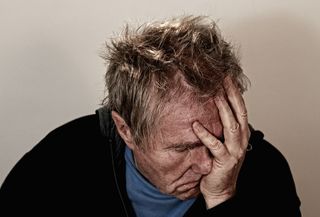Depression
What Is Depression?
Depression is, in fact, surprisingly difficult to define.
Posted January 18, 2017

[Article revised on 13 July 2020.]
I regret to say there is no simple or easy answer to this question.
Many people use the word ‘depression’ to refer to normal disappointment or sadness, and there can be little doubt that the concept of depression as a mental disorder, that is, as a biological illness of the brain, has been overextended to include all manner of human suffering.
The concept of depression as a mental disorder may be helpful for the more severe cases treated by hospital psychiatrists (medical doctors such as myself who specialize in the diagnosis and treatment of mental disorders), but probably not for the majority of cases, which, by and large, are mild and short-lived and readily interpreted in terms of life circumstances, human nature, or the human condition.
Figures for the lifetime incidence of depression (the chance of any one person developing depression in the course of his or her lifetime) vary according to the criteria used to define ‘depression’, that is, according to where the line is drawn between illness and normality.
Using the criteria in the influential American classification of mental disorders, the DSM-5, the lifetime incidence of depression is about 15 per cent, and the point prevalence (the chance of any one person suffering from depression at this point in time) is about 5 per cent—which still seems very high for a biological illness of the brain.
Depression, as defined by DSM-5, is so common that the costs of treating it exceed the costs of treating hypertension and diabetes combined.
Why is it so difficult to define ‘depression’?
If someone is suspected of having malaria, a blood sample can be taken and examined under a microscope for malarial parasites of the genus Plasmodium; and if someone appears to have suffered a stroke, a brain scan can be taken to look for evidence of obstruction of an artery in the brain.
But unlike malaria and stroke and most other medical conditions, depression, in common with other mental disorders, cannot (as yet?) be defined and diagnosed according to its physical cause (ætiology) or effect (pathology), but only according to its manifestations or symptoms.
This means, in practice, that a doctor cannot draw a diagnosis of depression on any objective criterion such as a blood test or a brain scan, but only on his or her subjective interpretation of the nature and severity of the patient’s reported symptoms. If some of these symptoms appear to tally with the diagnostic criteria for depression, which are very loose, then, hey presto, the doctor is able to justify drawing a diagnosis of depression.
The problem here, as you may have spotted, is that the definition of ‘depression’ is circular: the concept of depression is defined according to the symptoms of depression, which are, in turn, defined according to the concept of depression.
For this reason, it is impossible to be certain that the concept of depression maps onto any distinct disease entity, particularly since a diagnosis of depression can apply to anything from mild depression to depressive psychosis and stupor, and overlap with several other concepts and constructs including adjustment disorder and anxiety disorders.
One consequence of our ‘menu of symptoms’ approach to diagnosing depression is that two people with absolutely no symptoms in common can both end up with the same, single diagnosis of depression. In fact, a recent paper in the Lancet suggests that there are up to 10,377 unique ways to qualify for a diagnosis of depression. For this reason especially, the concept of depression as a mental disorder has been charged with being little more than a socially constructed dustbin for all manner of human suffering.
We often speak of normal disappointment or sadness as ‘depression’, as in, "Jack is feeling depressed (upset) after failing his driving test." We even apply the term to undesirable outcomes or states of affairs, as in, "Plastic pollution in the Pacific Ocean is pretty depressing." So when things in our life get out of control, it can be all too easy to conclude that we are suffering from what is, in the end, a mental disorder.
But by pushing us towards doctors and drugs, this belief can prevent us from identifying and addressing the important life problems or psychological problems that underlie our distress, and so from making a more complete and durable recovery.
Neel Burton is author of Growing from Depression and other books.
References
Fried EI et al. (2020): The 341 737 ways of qualifying for the melancholic specifier. Lancet 7(6):479-480.


